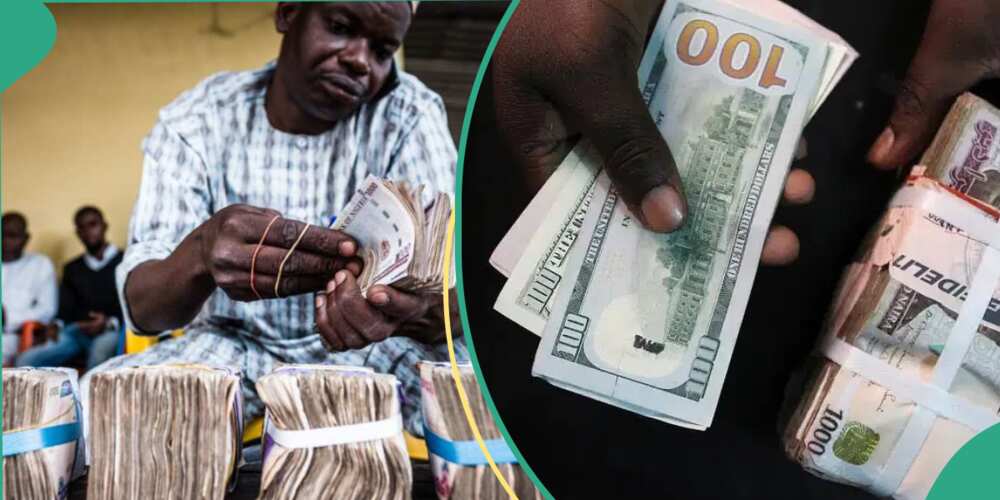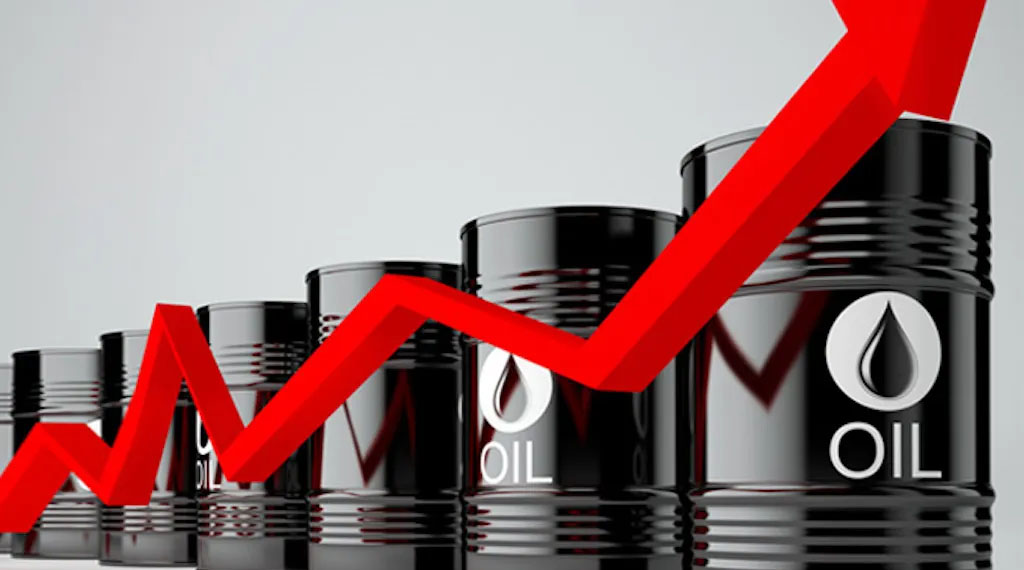Business
Aviation Crisis Deepens As Marketers, Operators Fail To Agree On New Jet Fuel Price

There is uncertainty over the threat by the airline operators to shut down operation following the skyrocketing price of aviation fuel known as Jet A1.
Óil marketers and operators failed to agree on a new pricing template, Daily Trust can report.
A meeting of the Airline Operators of Nigeria (AON) and the aviation fuel marketers to develop a new pricing template for the Jet fuel which has disrupted flight operations in the last few weeks ended without the two parties arriving at a favourable pricing framework.
The meeting, which held physically and virtually, had the airline operators and many fuel suppliers in attendance with the Executive Director, Distribution Systems, Storage & Retailing Infrastructure of the Nigerian Midstream and Downstream Petroleum Regulatory Authority (NMDPRA), Mr Ogbugo Ukoha, coordinating.
Also at the meeting was the Group Executive Director, Downstream of the Nigerian National Petroleum Corporation (NNPC), Mr. Adeyemi Adetunji.
It was a follow-up to the stakeholders’ meeting held at the instance of the House of Representatives where it was agreed that jet fuel would be sold at N500 per litre for three days while operators would be given license to import fuel.
To come up with an acceptable pricing template, the AON and the fuel marketers represented by the Major Oil Marketers Association of Nigeria (MOMAN) and Depot and Petroleum Products Marketers Association of Nigeria (DAPPMAN) and the NNPC representatives met and both parties made their positions known.
Chairman of United Nigeria Airlines, Chief Obiora Okonkwo, who spoke on behalf of the airlines, insisted that buying fuel for over N500 per litre is not sustainable, saying no Nigerian would be able to fly if the airlines increase ticket fares.
Okonkwo said aviation is a social service and the shutdown would affect every sector of the economy, stressing the need for any form of intervention from the federal government to avert the looming crisis.
Findings by Daily Trust showed that aviation fuel sells between N570 and N607 per litre across the country.
A breakdown of the pricing across regions indicated that it was N570 in Lagos; N579 in Abuja and Port Harcourt and N607 in Kano.
But the Chairman/CEO of Nepal Oil and Gas Services Limited, Ngozi Ekeoma, debunked the insinuation that aviation fuel marketers have become a cartel, saying the parameters for determining the price remain unambiguous.
She said, “Aviation fuel is not a cartel based product. The parameters for determining prices are there. As of today, a vessel costs $25,000 per day at the port. There is the marine cost, we have problems even loading the ATK (the jet fuel). We use trucks that run on diesel. This also adds to the costs. We will have to put all of these costs. For every litre, I am paying FAAN (Federal Airports Authority of Nigeria) N3:50k.”
However, both parties were asked to submit three names each which would work overnight with the NNPC representatives to come up with a new pricing framework.
On the part of airlines, CEOs of Arik Air, Aero Contractors and the United Nigerian Airlines, were appointed while the fuel marketers would be represented by Joseph Olanipekun; Farouk Mogaji; Samuel Ekpese for MOMAN as well as Yusuf Mohammed and John Abegunda for DAPMAN. Also a representative of the Nigerian Civil Aviation Authority (NCAA) would be in attendance.
The meeting however agreed to reconvene by 4 p.m on Wednesday.
Ukoha who stated that the team would work overnight to agree on a new price said, “First is that before the end of today, we will revisit the issue about yesterday’s decision that wasn’t abided with today. You will hear from us.
“By tomorrow, we can come up with figures that are agreeable to everybody upon which we can base the framework.”
DAILY TRUST
Business
Naira records five-month highest gain, sells below N1000/$ at parallel market

Naira records five-month highest gain, sells below N1000/$ at parallel market
The naira continued its positive showing against the United States dollar on Monday, selling below N1000/$ in some segments of the parallel market.
Newstrends reports that the Federal Government, groups and some individuals have mounted a spirited campaign for those hoarding the dollars to push them out as naira continues to appreciate.
On Monday, the naira was offered in some parts of Lagos and Abuja between N995 and N1,050 per dollar in the parallel market. It was N1,230/$ on Friday.
The latest gain, being over five-month highs, came in the wake of the Iranian attack on Israel and a rise in the crude oil price.
Goldman Sachs, American investment bank economists, had earlier predicted that the naira’s bullish momentum on the foreign exchange market would likely cause it to trade for less than N1,000 per US dollar in the coming months.
According to a report by Nairametrics, the group claimed that the rally in Nigerian currency helped recover from large losses after two devaluations since last June by being bolstered by capital inflows and successive interest rate hikes.
In March, Goldman Sachs projected that the Naira would appreciate to N1,200 per dollar in 2024.
At the official foreign exchange market, the rate was put at N1,136/$ in contrast with N1,205/$ last Friday.
The top bank has implemented several policy initiatives in recent months to bring stability to the foreign exchange market.
The CBN increased interest rates to 24.75% at the most recent meeting of the Monetary Policy Committee (MPC), which helped it recover losses from the two devaluations that occurred since June of last year.
Further gains for the naira result from the CBN’s ongoing intervention, which involves selling foreign exchange to Bureau De Change operators at a revised rate.
The market anticipates higher inflows of US dollars from the sale of foreign currency bonds in the second quarter as disclosed by Finance Minister Wale Edun.
The Federal Government has just offered high-yield short-term debt products at a premium to entice overseas capital into the economy.
The Middle East’s geopolitical unrest and
Notwithstanding a drop in Nigeria’s production volume, crude oil prices have risen beyond $90.
Nigerian grades of oil are trading at a premium to the ICE Brent benchmark.
The Middle East’s geopolitical unrest and the anticipation of an Iranian government strike on Israel caused oil prices to soar.
Business
Breaking: Nigeria’s inflation rises to 33.2%, says NBS

Breaking: Nigeria’s inflation rises to 33.2%, says NBS
The National Bureau of Statistics (NBS) says the nation’s inflation rate rose to 33.2 per cent for the month of March 2024.
This represents a 1.5 per cent increase over 32.7 per cent recorded in February 2024.
The NBS disclosed this in a new report released on Monday.
It explained that the rise was primarily due to higher costs of food, beverages, energy, and housing. Compared to February 2024, the inflation rate in March increased at a slower pace, with food inflation reaching 40.01% year-on-year.
NBS attributed the spike in food prices to the rising costs of items like garri, millet, yam tubers, and others. On a month-on-month basis, food inflation slightly decreased to 3.62% in March 2024.
Urban inflation also increased to 35.18% year-on-year in March 2024, while rural inflation stood at 31.45%.
Core inflation, which excludes volatile agricultural products and energy, was 25.90% year-on-year in March 2024.
Overall, the rising cost of living in Nigeria is evident in the significant increase in inflation rates across different categories.
It is crucial for policymakers to address these challenges to alleviate the financial burden on the population.
Business
Nigeria’s oil production drops by 2.8 million barrels in one month

Nigeria’s oil production drops by 2.8 million barrels in one month
The Nigeria Upstream Petroleum Regulatory Commission (NUPRC) has confirmed the data released by the Organisation of Petroleum Exporting Countries (OPEC), indicating a consecutive decline in Nigeria’s oil production for the second month in a row.
According to NUPRC reports, crude drilling operations in March saw a notable decrease, with production dropping from 1.42 million barrels per day (bpd) in January to 1.23 million bpd in March, marking a significant loss of approximately 2.8 million barrels over the month.
Minister of State for Petroleum Resources (Oil), Senator Heineken Lokpobiri, acknowledged the declining trend, attributing it to issues on the Trans Niger Pipeline (TNP) and maintenance activities by oil companies in Nigeria during the period.
READ ALSO:
- Army kills terrorists invading Kaduna with arms, ammunition
- El-Rufai’s Ally, Aisha, arrested over Facebook post against Gov Sani
- FG begs workers as electricity union insists on strike over tariff hike
However, beyond crude oil, condensate production, which typically falls outside OPEC’s quota calculation, also experienced a decline in March, further exacerbating Nigeria’s overall production slump.
-

 metro6 days ago
metro6 days agoTribute: C.K George, Epitome of Courage, by Kunle Awobodu
-

 metro6 days ago
metro6 days agoTroops arrest ISWAP commander involved in Army General, 3 soldiers’ killing in Borno
-

 News5 days ago
News5 days agoBREAKING: Ex-Abia gov, Ogbonnaya Onu, is dead
-

 metro7 days ago
metro7 days agoBandit kingpin, Dangote, siblings killed in Katsina
-

 News6 days ago
News6 days agoBetta Edu threatens to sue BBC, alleges defamation
-

 News6 days ago
News6 days agoI never said Aiyedatiwa is Tinubu’s preferred candidate in Ondo – Interior Minister
-

 metro6 days ago
metro6 days agoJUST IN: Actor Junior Pope resuscitated after death scare
-

 metro6 days ago
metro6 days agoPolice arrest female kidnapper in Ebonyi, rescue six abducted children






















